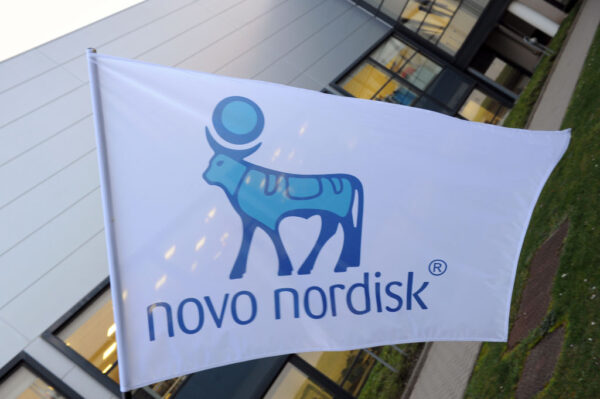
A Novo Nordisk drug for hypertension and chronic kidney disease has failed a pivotal study, a setback to the Danish pharmaceutical giant’s effort to bring patients a new therapy with potential safety and efficacy advantages over currently approved medications in the drug class, including a product marketed by Bayer.
Novo Nordisk did not release specific details about the Phase 3 results for the drug, ocedurenone. The company said Wednesday that an independent data monitoring committee recommended stopping the trial after a prespecified interim analysis.
Ocedurenone is a small molecule designed to block the mineralocorticoid receptor. When overactivated, this receptor can contribute to hypertension and chronic kidney disease. The list of approved mineralocorticoid receptor antagonists includes Bayer’s Kerendia, which won FDA approval in 2021 for treating chronic kidney disease in patients with type 2 diabetes. But drugs in this class are associated with hyperkalemia, elevated potassium levels in the blood that can cause muscle weakness, paralysis, and heart problems.
Novo Nordisk describes ocedurenone as a third-generation mineralocorticoid receptor antagonist designed with higher affinity for its target and a longer half-life — properties that could improve the drug’s safety and efficacy. The placebo-controlled Phase 3 study enrolled 652 adults with moderate-to-severe chronic kidney disease and uncontrolled hypertension. The main goal was to measure a change in systolic blood pressure, first from baseline to week 12 and then from weeks 48 to 52. Novo Nordisk said the study did not meet its goal at week 12, and the company is stopping the trial. No details about the drug’s safety or tolerability were reported.
The Phase 3 test was conducted by KBP Biosciences, the company that discovered and developed ocedurenone. Novo Nordisk acquired rights to the drug last October, disclosing few financial details. On Wednesday, the pharma giant said it will recognize a 5.7 billion Danish krone (about $820 million) impairment loss in the current quarter related to ocedurenone. However, it might not be the end of the road for the drug. Novo Nordisk said it is evaluating the possibility of developing ocedurenone in other indications.
Pipeline diversification is a key part of Novo Nordisk’s strategy, John McDonald, the pharma giant’s global head of business development and M&A said during a session at the BIO conference in San Diego in early June. Demand continues to grow for the company’s injectable metabolic disorder drugs Ozempic and Wegovy, which are recording record revenue numbers. Novo Nordisk is reinvesting some of that cash into new drug candidates acquired in business deals. The company’s primary areas of focus are diabetes and obesity, McDonald said. Beyond those two indications, therapeutic areas of interest include cardiovascular and kidney diseases.
Manufacturing is another area of investment for Novo Nordisk. On Monday, the company announced plans to spend 27 billion Danish krone (about $4.1 billion) to expand a site in Clayton, North Carolina. The expansion will add a second facility for fill and finishing, which involves filling vials or syringes with drugs and packaging them for distribution. Novo Nordisk said the 1.4 million square foot site will handle production of injectable medications for obesity and other serious chronic diseases. This capital investment plan comes nearly five months after Novo Nordisk reached an $11 billion deal to acquire three Catalent manufacturing sites for sterile injectable drugs.

The Power of One: Redefining Healthcare with an AI-Driven Unified Platform
In a landscape where complexity has long been the norm, the power of one lies not just in unification, but in intelligence and automation.
Photo: Jean-Francois Monier/AFP, via Getty Images








